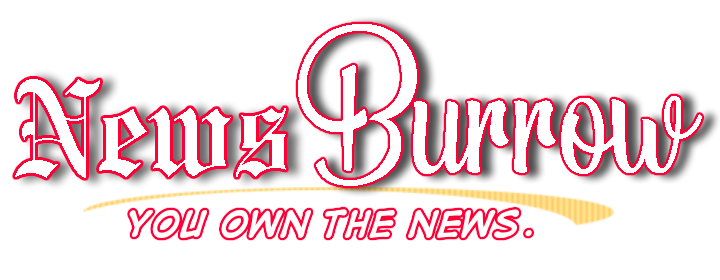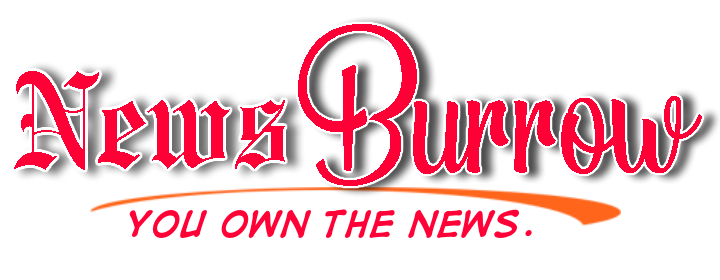Table of Contents
Canada Election 2025
Canada Election 2025: Carney’s Gamble Against Trump
Canada Election 2025: Prime Minister Mark Carney’s snap election call is a direct response to escalating trade tensions with the United States under President Trump, creating a high-stakes battle for Canada’s future.
Canada Election 2025: Carney’s High-Stakes Gamble Against Trump
The political landscape in Canada is about to be shaken. Prime Minister Mark Carney, the former central banker who recently took the helm of the Liberal Party, is poised to call a snap election. This isn’t just another routine political exercise; it’s a direct challenge to the looming specter of President Donald Trump and his aggressive trade policies. As the Canada Election 2025 approaches, the stakes couldn’t be higher.
With the Canada election date 2025 rapidly approaching, Canadians are bracing for a campaign dominated by the looming presence of their southern neighbor. Trump’s threats and tariffs have cast a long shadow, turning this election into a referendum on how Canada should navigate its relationship with an increasingly unpredictable United States.
The Snap Election: Unveiling the Urgency Behind Carney’s Call
Why now? That’s the question on everyone’s lips as Carney prepares to dissolve Parliament. The timing is crucial. With Trump’s trade war escalating and his rhetoric growing increasingly hostile, Carney sees an opportunity to capitalize on a surge of Canadian nationalism. This isn’t just about securing a mandate; it’s about sending a clear message to Washington that Canada will not be bullied.
The decision to call an early election is a calculated risk. Carney is betting that the fear of Trump’s economic aggression will outweigh any domestic concerns, uniting Canadians behind his leadership. But can he pull it off? The political arena is rife with uncertainty, and the Conservatives are ready to pounce on any misstep.
Carney’s advisors believe that striking now, while the iron is hot, offers the best chance of securing a Liberal majority. Delaying the election could allow Trump’s policies to further destabilize the Canadian economy, eroding public confidence in the government. The next few weeks will be a sprint, a whirlwind of rallies, debates, and media appearances, all aimed at swaying the hearts and minds of Canadian voters.
Trump’s Shadow: How U.S. Tariffs Ignited the Election Firestorm
The catalyst for this election upheaval is none other than Donald Trump. His administration’s imposition of hefty tariffs on Canadian steel and aluminum, coupled with threats of even more sweeping levies, has sent shockwaves through the Canadian economy. These aren’t just economic measures; they’re perceived as an attack on Canadian sovereignty.
Trump’s actions have been interpreted by many Canadians as a deliberate attempt to undermine their economy and assert American dominance. The 25% tariffs on steel and aluminum have already cost Canadian businesses billions of dollars, and the threat of tariffs on all Canadian goods has created a climate of uncertainty and fear.
The economic impact of Trump’s tariffs is undeniable. Canadian businesses that rely on exports to the United States are struggling to compete, and many have been forced to lay off workers. The tariffs have also disrupted supply chains and increased costs for consumers, adding to the economic anxiety felt by many Canadians.
Mark Carney: From Financial Crisis Manager to Political Frontman
Mark Carney’s journey to the top of Canadian politics is nothing short of remarkable. A former central banker with a reputation for calm and competence, he was unexpectedly chosen to lead the Liberal Party after Justin Trudeau stepped down. His selection was seen as a strategic move to bring stability and experience to a party facing turbulent times.
Carney’s background is a stark contrast to the typical politician. He made his name navigating the treacherous waters of the 2008 financial crisis as the Governor of the Bank of Canada. He then went on to become the first non-British citizen to head the Bank of England, further solidifying his reputation as a global financial leader.
His political inexperience is both a strength and a weakness. On one hand, he brings a fresh perspective and a reputation for integrity. On the other hand, he lacks the political instincts and connections that seasoned politicians often rely on. Whether his financial acumen can translate into political success remains to be seen.
Liberal Surge: Riding the Wave of Patriotic Fervor
Trump’s aggressive stance towards Canada has inadvertently ignited a surge of Canadian nationalism, and the Liberal Party is hoping to ride that wave to victory. As Trump’s threats intensified, poll numbers for the Liberals began to climb, suggesting that Canadians are rallying around the flag in response to perceived external aggression.
The surge in nationalism is a powerful force in this election. Canadians are fiercely proud of their country and its values, and they resent being bullied by a larger neighbor. The Liberal Party has successfully tapped into this sentiment, positioning itself as the defender of Canadian sovereignty and economic interests.
However, relying solely on nationalism is a risky strategy. The Liberals need to offer more than just rhetoric; they need to present a clear and credible plan for navigating the challenges posed by Trump’s policies. Whether they can do so effectively will determine their success in the upcoming election.
Carney vs. Poilievre: A Tale of Two Canadas
The Canadian election Carney is shaping up to be a battle between two very different visions for Canada’s future. On one side stands Mark Carney, the pragmatic central banker who promises stability and competence. On the other side is Pierre Poilievre, the fiery populist who champions individual freedom and limited government.
Carney’s platform focuses on protecting Canada’s economy from Trump’s tariffs, investing in green technology, and strengthening social programs. He presents himself as a steady hand at the helm, someone who can navigate the turbulent waters of international trade and ensure Canada’s continued prosperity.
Poilievre, on the other hand, paints a picture of a country burdened by high taxes and excessive government regulation. He promises to cut taxes, reduce government spending, and unleash the power of the free market. He appeals to voters who feel left behind by the current system and who are looking for a more radical change.
Economic Battleground: High-Stakes Debates on Tariffs and Affordability
The election will be fought on the economic front, with tariffs, government spending, and affordability taking center stage. Trump’s tariffs have already had a significant impact on the Canadian economy, and the debate over how to respond to them will be a key issue in the campaign. Both Carney and Poilievre have offered different solutions, but which one will resonate with voters?
Carney advocates for a measured and strategic response, including retaliatory tariffs and negotiations with the United States. He argues that Canada needs to stand firm against Trump’s bullying, but also needs to find ways to cooperate on issues of mutual interest. Poilievre, on the other hand, favors a more confrontational approach, arguing that Canada should challenge Trump’s tariffs at the World Trade Organization and explore alternative trade agreements with other countries.
Beyond tariffs, the election will also focus on domestic economic issues, such as rising housing costs and the affordability of everyday goods. Both parties have promised to address these concerns, but their approaches differ significantly. Carney has proposed targeted tax cuts and investments in affordable housing, while Poilievre has called for deregulation and a reduction in government spending.
Mapping the Electoral Battlefield: Key Seats to Watch
The Canada election polls 2025 suggest a close race, making the outcome highly uncertain. The election will be decided in a handful of key ridings across the country, where the battle for votes will be particularly intense. Understanding the electoral map and the demographics of these ridings is crucial for predicting the final result.
Ontario, with its large population and diverse economy, will be a key battleground. The Liberals and Conservatives are expected to compete fiercely for votes in the Greater Toronto Area, where suburban voters often swing between the two parties. British Columbia, with its strong environmental movement and growing tech sector, will also be a closely watched province. The NDP is hoping to make gains in BC, while the Liberals and Conservatives will be vying for the support of moderate voters.
The Prairies, traditionally a Conservative stronghold, could also see some interesting races. The rise of populist movements in Alberta and Saskatchewan could challenge the Conservative dominance, while the Liberals are hoping to capitalize on growing urban populations in Winnipeg and Regina.
Trump’s Provocations: Annexation Threats and the Erosion of Diplomacy
Perhaps the most shocking aspect of Trump’s relationship with Canada has been his repeated suggestions that the country should become the 51st state of the United States. These comments, dismissed by many as mere bluster, have nonetheless been deeply unsettling to Canadians, who view them as an attack on their national identity.
Trump’s annexation threats have been widely condemned by Canadian politicians of all stripes. They are seen as a blatant disregard for Canadian sovereignty and a sign of disrespect for the long-standing relationship between the two countries. However, the threats have also had the unintended consequence of galvanizing Canadian nationalism and uniting Canadians against a common adversary.
The erosion of traditional diplomatic norms under Trump has made it increasingly difficult for Canada to navigate its relationship with the United States. The usual channels of communication have been disrupted, and personal attacks have become commonplace. This has created a climate of uncertainty and mistrust, making it harder for the two countries to resolve their differences.
The Trust Factor: Poilievre’s Attack on Carney’s Finances
As the election campaign heats up, the Conservative Party is focusing its attacks on Mark Carney’s personal finances. Poilievre has repeatedly questioned the transparency of how Carney transitioned his assets into a blind trust when he entered politics, alleging that Carney may have benefited from insider information.
The blind trust controversy has the potential to damage Carney’s reputation for integrity, which is one of his key strengths. Poilievre is hoping to sow doubts in voters’ minds about Carney’s trustworthiness, arguing that he is just another out-of-touch elitist who is more concerned with his own wealth than with the needs of ordinary Canadians.
Carney has defended his handling of his finances, arguing that he followed all the rules and regulations. He has also accused Poilievre of engaging in personal attacks and spreading misinformation. However, the controversy is likely to continue to dog Carney throughout the campaign, and it remains to be seen whether he can successfully defuse it.
Campaign Promises: A Glimpse into Canada’s Potential Future
As the Canadian election impact becomes clearer, both the Liberal and Conservative parties are making a flurry of promises in an effort to win over voters. From tax cuts to investments in infrastructure, the parties are offering competing visions for Canada’s future. A closer look at these promises reveals the stark differences between their approaches.
The Liberals are promising to continue their investments in social programs, such as healthcare and education, while also focusing on green technology and renewable energy. They are also pledging to make housing more affordable and to reduce income inequality. The Conservatives, on the other hand, are promising to cut taxes, reduce government spending, and streamline regulations. They argue that this will stimulate economic growth and create jobs.
One of the most hotly debated promises is the proposal to eliminate the GST for first-time homebuyers. Both Carney and Poilievre have endorsed this idea, but they differ on the details of how it would be implemented. The proposal is aimed at addressing the growing housing affordability crisis in Canada, but critics argue that it would only benefit a small segment of the population and could drive up prices even further.
Carney’s Silent Strategy: Avoiding a Showdown with Trump
In a surprising move, Mark Carney has chosen not to engage directly with Donald Trump before the election. Despite the escalating trade tensions and the personal attacks, Carney has refrained from picking up the phone and attempting to negotiate with the U.S. President. This strategy has raised eyebrows in both Canada and the United States.
Carney’s advisors argue that engaging with Trump before the election would be a waste of time. They believe that Trump is not interested in genuine dialogue and that any attempt to negotiate would be futile. They also fear that a public spat with Trump could backfire, further inflaming nationalist sentiments and boosting the Conservative Party’s chances.
However, critics argue that Carney’s silence is a sign of weakness and that he is shirking his responsibility to defend Canada’s interests. They argue that he should be standing up to Trump and making the case for a fair and mutually beneficial trading relationship. The decision not to engage with Trump is a risky gamble, and it remains to be seen whether it will pay off.
Beyond the Border: The Global Ripples of Canada’s Choice
The outcome of the Canada Election 2025 will have implications far beyond Canada’s borders. In an increasingly uncertain world, Canada’s relationship with the United States is a crucial anchor of stability. The election will determine whether Canada continues to pursue a close partnership with its southern neighbor or charts a more independent course.
A victory for Carney and the Liberals would likely signal a continuation of the current approach, with an emphasis on diplomacy and cooperation. While Carney would undoubtedly stand up for Canada’s interests, he would also be committed to finding common ground with the United States on issues such as trade, security, and climate change.
A victory for Poilievre and the Conservatives, on the other hand, could lead to a more confrontational relationship with the United States. Poilievre has expressed skepticism about international agreements and has vowed to put Canada’s interests first, even if it means clashing with its allies. The world is watching closely to see which path Canada will choose.
As the Canadian election impact reverberates, the global community is keen to understand how Canada will position itself on the world stage. The choices made in this election will shape not only Canada’s future but also its role in an increasingly complex and interconnected world.
Conclusion: A Nation at a Crossroads
As Canada stands on the precipice of the Canada Election 2025, the nation faces a pivotal choice. Will it embrace the steady hand of Mark Carney, the former central banker who promises to navigate the turbulent waters of the Trump era? Or will it opt for the populist fervor of Pierre Poilievre, who promises to shake up the status quo and unleash the power of the free market? The answer will determine not only Canada’s future but also its place in the world.
The Canadian election Carney is more than just a contest between two political parties. It’s a referendum on Canada’s values, its identity, and its relationship with the United States. The stakes are high, and the outcome is far from certain. But one thing is clear: the next few weeks will be a defining moment in Canadian history.
Regardless of who wins, the Canada Election 2025 will leave a lasting mark on the country. The debates and divisions that have been exposed during the campaign will continue to shape Canadian politics for years to come. As Canadians head to the polls, they must weigh their choices carefully, knowing that the future of their nation hangs in the balance.
As Canada braces for a pivotal election, understanding the nuances of Canadian politics becomes more crucial than ever. From the historical context that shaped the nation to the intricate policy debates defining the current landscape, a deeper dive into the subject can offer invaluable insights. Whether you’re a seasoned political analyst, a student eager to learn, or simply a concerned citizen, expanding your knowledge base is key to navigating the complexities of this election cycle.
Ready to delve deeper into the world of Canadian politics? Explore our curated selection of Canadian Politics Books. From insightful analyses of past elections to in-depth explorations of current policy debates, these resources offer a wealth of knowledge to help you stay informed and engaged. Click here to discover the books that will enrich your understanding and empower you to participate more effectively in the democratic process. Don’t forget to share your thoughts in the comments below and subscribe to the NewsBurrow newsletter for the latest updates and expert analysis!
Shop Products On Amazon
Shop Products on Ebay
Trending Similar Stories in the News
Trending Videos of Canada Election 2025




GIPHY App Key not set. Please check settings